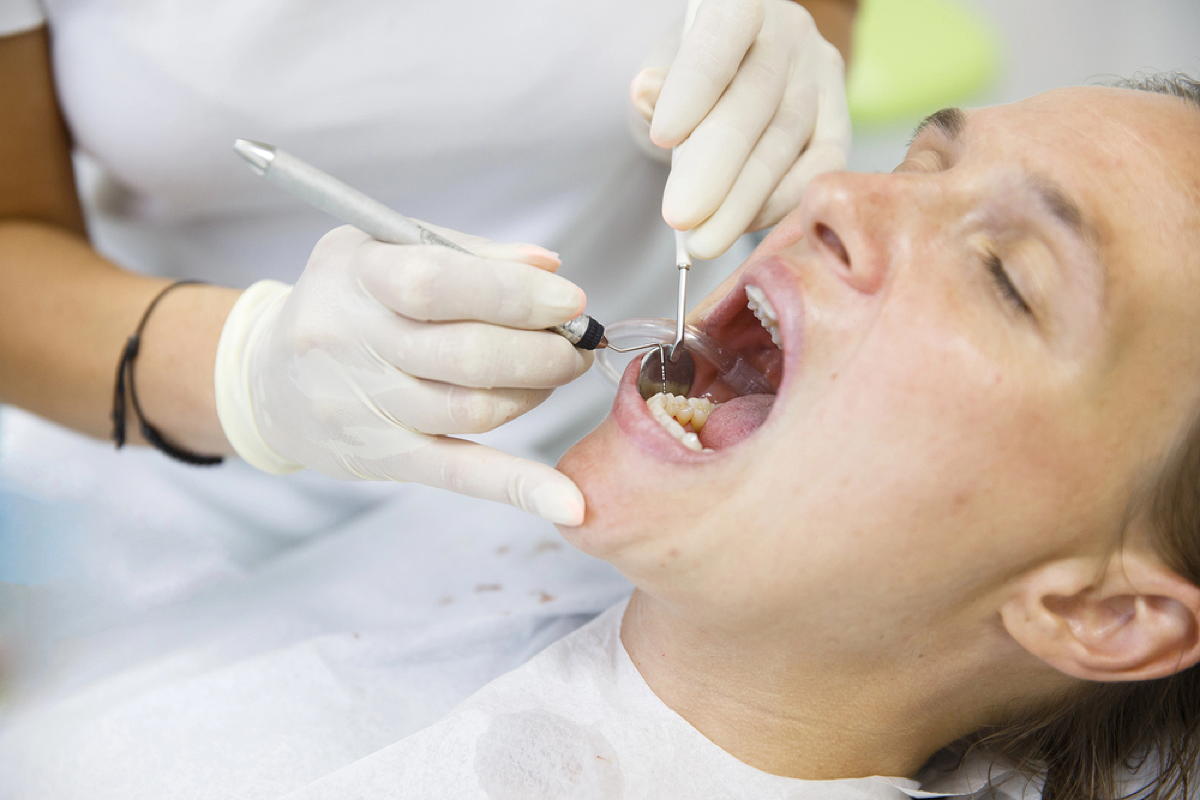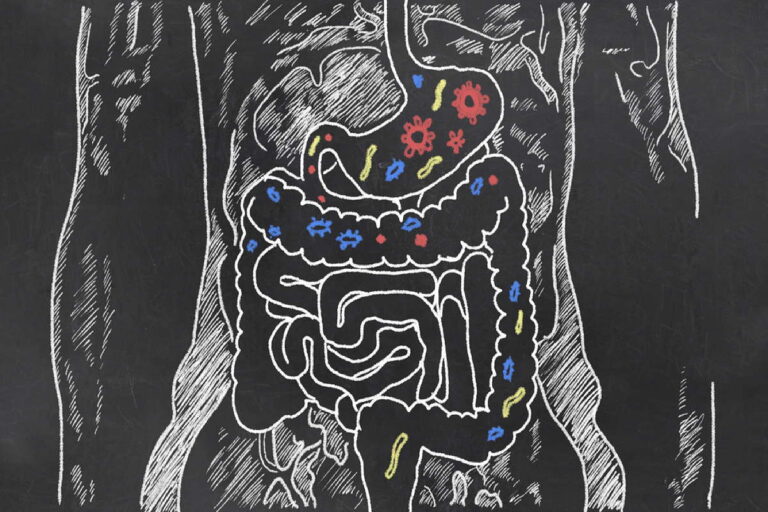What helps against tartar?
Tartar is a common problem that affects the dental health of many people. Within just two days, plaque can form in the mouth and be mineralized by saliva, resulting in hard tartar.
This process is facilitated by bacteria that colonize your mouth and contribute to the formation of dental plaque. Good oral hygiene is crucial to prevent the formation of tartar.
In this article, you will find out how you can prevent tartar with the right daily care and diet and which methods are available for the professional removal of tartar.
Understanding tartar: Formation and causes
The formation of tartar is a process that is favored by various factors. Tartar forms when plaque hardens on your teeth.
What is tartar and how does it form?
Tartar is a hard deposit on your teeth caused by the mineralization of plaque. If you don’t clean your teeth regularly and thoroughly, plaque can build up. The saliva in your mouth can mineralize this plaque and turn it into tartar.
Where does tartar form most frequently?
Tartar tends to form in certain areas of your mouth. The insides of your lower front teeth and the outsides of your upper molars are particularly at risk. This is where the excretory ducts of the salivary glands are located, which leads to a higher concentration of minerals in the saliva. This accelerates the hardening of plaque into tartar.
Tartar also often forms in the interdental spaces, where plaque is difficult to remove, and on rough or uneven tooth surfaces to which plaque adheres particularly well.
Recognizing tartar: Signs and risks
It is important to detect tartar early to avoid serious consequences. Tartar can affect your oral health in various ways.
How do you recognize tartar on your teeth?
Tartar is often recognizable by its yellowish or brownish discoloration. It usually forms on the teeth, especially around the gums. If you notice tartar on your teeth, it is important to act quickly.
Some signs of tartar are
- Yellowish or brownish discoloration on the teeth
- Rough surfaces on the teeth
- Bleeding or inflammation of the gums
- Bad breath
Health risks due to tartar
Tartar not only poses aesthetic problems, but also serious health risks. Bacteria can easily colonize and multiply due to the rough surface of the tartar.
Some of the risks are:
- Gum inflammation and periodontitis
- Increased risk of tooth decay
- Long-term loss of teeth
Professional tartar removal
Professional tartar removal is essential to maintain your dental health in the long term. Tartar provides a favored environment for harmful bacteria, so it is important to have it removed regularly.
The frequency of tartar removal depends on your individual situation. Factors such as the position of your teeth, dentures and brushing technique play an important role.
Methods of professional tartar removal
There are various methods to remove tartar professionally. Your dentist can choose the most suitable method for you, depending on the severity of the tartar build-up and your general oral health.
One of the most common methods is ultrasonic scaling. This method is both effective and gentle.
How often should tartar be removed?
It is recommended to have tartar removed 2-4 times a year to protect your dental health. For some people, a professional dental cleaning every six months may be sufficient, while others may benefit from a quarterly treatment.
The costs for simple dental scaling are usually covered by statutory health insurance once a year. However, you usually have to pay for a more comprehensive professional dental cleaning yourself.
What helps against tartar: Effective prevention methods
Preventing tartar requires a combination of the right brushing technique and suitable aids. To effectively prevent tartar, you should pay attention to careful oral hygiene.
Correct tooth brushing technique
One of the most important measures to prevent tartar is the correct brushing technique. You should brush your teeth at least twice a day with an electric toothbrush, as this removes plaque more effectively than a conventional manual toothbrush. Make sure you clean all tooth surfaces thoroughly.
It is also important to clean the spaces between your teeth every day, as plaque can easily build up there and lead to tartar. Use dental floss or interdental brushes to ensure thorough cleaning.
Aids for optimal tooth cleaning
For optimum tooth cleaning and to prevent tartar, you should use high-quality aids. A toothpaste containing fluoride can help to strengthen the enamel and protect it from acid attacks.
- Choose a toothbrush that cleans your teeth thoroughly without damaging the enamel.
- Use dental floss or interdental brushes to clean the spaces between your teeth.
- Supplement your oral hygiene with antibacterial mouthwashes to reduce bacteria in hard-to-reach areas.
- Use a tongue cleaner to remove bacteria from the tongue surface that can contribute to the formation of new plaque.
Regular professional teeth cleaning, carried out every six months to quarterly, can also help to prevent tartar build-up.
Daily oral hygiene for tartar prevention
You can effectively prevent tartar through careful daily oral hygiene. Good oral hygiene not only includes regular tooth brushing, but also cleaning the spaces between your teeth and healthy dental care.
The optimal dental care routine
An optimal dental care routine starts with brushing your teeth properly. You should brush your teeth at least twice a day, in the morning after breakfast and in the evening before going to bed. Use a fluoride toothpaste and a soft toothbrush to clean your teeth thoroughly.
It is also important that you clean your tongue and the roof of your mouth to remove bacteria and plaque that can build up there.
| Dental care product | Description | Intended use |
|---|---|---|
| Toothpaste containing fluoride | Toothpaste with fluoride to prevent tooth decay | Brushing your teeth |
| Soft toothbrush | Toothbrush with soft bristles | Brushing your teeth |
| Dental floss | Thread for cleaning the interdental spaces | Cleaning the interdental spaces |
Cleaning the interdental spaces
Cleaning the spaces between your teeth is an important part of your daily oral hygiene. You should clean the spaces between your teeth at least once a day, as plaque builds up particularly easily there and cannot be removed with a toothbrush alone.
- Use dental floss for narrow interdental spaces and carefully guide it along the tooth flanks to remove plaque below the gum line.
- Interdental brushes are often more suitable than dental floss for wider spaces or for dentures such as bridges and implants.
- Pay particular attention to the areas between the back molars, as plaque often accumulates there due to the difficult accessibility.
Cleaning the interdental spaces should be an integral part of your daily dental care routine and should ideally be done in the evening before brushing your teeth.
Diet and lifestyle: influence on tartar formation
A healthy diet and a conscious lifestyle can make a decisive contribution to preventing tartar. Choosing the right foods can promote oral health and inhibit the formation of tartar.
Foods that promote tartar
Some foods can promote the formation of tartar by increasing the amount of bacteria and acids in the mouth. Sugary foods and drinks are particularly harmful as they feed the bacteria in the mouth and contribute to the formation of plaque.
It is advisable to reduce the consumption of sugary foods and drinks in order to inhibit the formation of tartar.
Foods that prevent tartar
On the other hand, there are foods that can help to prevent tartar. Vitamin C-rich foods such as citrus fruits, peppers and broccoli support healthy oral flora and inhibit the formation of tartar.
- Foods rich in vitamin C support healthy oral flora.
- Cheese binds acids in the mouth and inhibits the growth of plaque bacteria.
- Raw, crunchy vegetables act like a natural toothbrush and massage the gums.
- Natural sugar alternatives such as xylitol or erythritol are not metabolized by bacteria in the mouth.
By eating the right food, you can actively help to prevent tartar and promote your oral health.
Natural home remedies for tartar
Some natural home remedies can help you reduce tartar and improve your dental health. Although these remedies can be helpful, it is important to know their limitations and how to use them correctly.
Proven natural methods
There are various home remedies that you can use to prevent tartar. Some of these remedies are:
- Regular rinsing with mouthwash or salt water can help to reduce bacteria and prevent the formation of tartar.
- The use of toothpaste powder with natural ingredients can also be helpful.
However, it is important that you use these products correctly and not too aggressively to avoid damaging your enamel and gums.
Limits of household remedies
You should know that home remedies are not able to remove tartar that has already hardened. If you have tartar, professional treatment at the dentist is essential. Do not try to remove tartar yourself with sharp objects or aggressive agents, as this can cause damage.
Keep your teeth tartar-free in the long term
To keep your teeth tartar-free in the long term, a combination of good oral hygiene and regular visits to the dentist is crucial. A consistent oral hygiene routine helps to remove plaque before it turns into tartar.
By brushing your teeth twice a day with a fluoride toothpaste and a high-quality toothbrush, you can effectively prevent the build-up of plaque. It is also advisable to clean the spaces between your teeth daily with dental floss or interdental brushes, as plaque builds up particularly easily in these areas.
Regular visits to the dentist, ideally twice a year, enable early detection and treatment of tartar and other oral health problems. A tooth-healthy diet with little sugar and lots of fresh food also supports oral hygiene and can reduce the risk of periodontitis and other diseases.
Remember that the cost of a professional dental cleaning is an investment in your dental health and can save you expensive treatments in the long run. By reducing risk factors such as smoking and excessive alcohol consumption, you can also minimize the development of tartar and gum disease.






